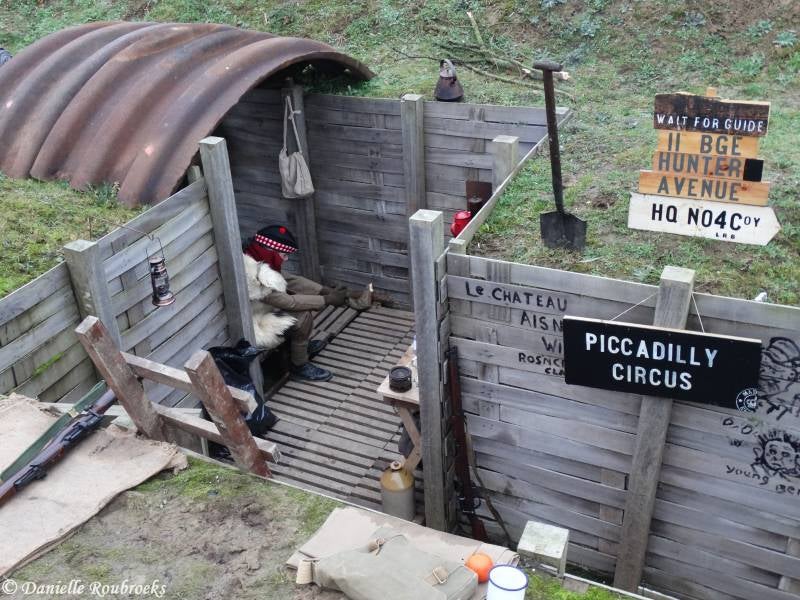Ploegsteert, Belgium - St-Yvon 1914 Christmas Truce - December 2016
On 24 December 1914, something extraordinary happened amid the hellish killing fields of the Western Front. German and Allied troops, mercilessly slaughtering each other just hours earlier, laid down their arms and embraced Christmas together.
In one of the most poignant events in human history, sworn enemies dropped their weapons, clambered out of trenches and crossed the shell-blasted mud of no-man’s land to shake hands, sing carols and exchange gifts. The British brought Bully beef, rum and cigarettes to the party. In exchange, the Germans traded sausages, coffee and cognac. Then, famously, a football match was played.
To be precise, a small number of football matches were played, up and down the length of the 500-mile front line. The most famous of these impromptu international football matches occurred at St Yvon in southern Belgium, around eight miles south of Ypres. Here, in the fields of the Walloon village of Ploegsteert - known to the Tommies as “Plugstreet” - Saxon troops played their British counterparts on the slender strip of soil dividing the two armies.
The Germans had started it. The unofficial truce began on 24 December - the day they traditionally celebrated Christmas - when they began decorating the frosted parapets of their trenches with candles and Christmas trees.
Carols followed, including a rendition of ‘Stille Nacht.’ The British responded from across no-man’s-land with ‘The First Noel.’ And so it continued until, when the British sang ‘O Come All Ye Faithful,’ they heard the Germans joining in with the Latin words. Finally, a German messenger raised a white flag and strode boldly across the lines to broker the Christmas ceasefire.
In a letter home, Staff Sergeant Clement Barker from Ipswich described the extraordinary scene that subsequently unfolded. “Our men went out and brought the dead in and buried them,” he wrote to his brother. “The next thing, a football kicked out of our trenches - and the Germans and English played football.”
The official war history of the German Army’s 133rd Saxon Regiment describes the Plugstreet match beginning after Scottish and German soldiers chased hares - emboldened by the sudden cessation of gunfire - across no-man’s land together. As they laughed and joked, another Scot booted a leather football into their midst.
“This developed into a regulation football match with caps casually laid down as goals,” records the Saxon’s official history. “The frozen ground was no great matter. Then we organized each side into teams, lining up in motley rows, the football in the centre.”
Despite this element of surprise - presumably revealed in a sliding tackle - both sides agree on the final score that day. As the official Saxon account has it: “Das Spiel endete 3:2 fur Fritz.”





